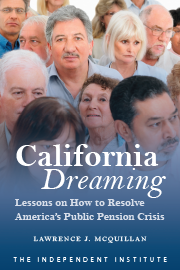Where should you locate new businesses and subsidiaries? In states with the fewest regulatory body blocks and fiscal obstacles. To give you a handle on those choices, the Pacific Research Institute for Public Policy in San Francisco has, with the help of economists Ying Huang and Robert E. McCormick of Clemson University, created a U.S. Economic Freedom Index.
In coming up with our ratings we evaluated 143 variables for each state, using the most recent data. This snapshot includes tax rates, state spending, occupational licensing, environmental regulations, income redistribution, right-to-work and prevailing-wage laws, tort laws and the number of government agencies. These we grouped into five sectors—fiscal, regulatory, judicial, size of government and social welfare. For each of the 143 variables we ranked states from 1 (most free) to 50 (least free), calculated an average sector ranking and then weighted them to get an overall score. Welfare, fiscal and regulatory matters counted about equally; government size and judicial ratings counted for less.
Kansas came up number one, thanks largely to its respect for property rights: It engages in less income redistribution and attracts less tort litigation than most states. The Kansas legislature is now considering innovative bills exempting custom software from sales taxes and eliminating the state franchise tax for most businesses—a serenade to entrepreneurial ears.
With the fewest regulatory barriers, Colorado places second. The state also ranks high in the fiscal sector, thanks to its constitutional tax limitation. Virginia, which shows restraint in income redistribution, is third. But it turns out that the South on the whole does not live up to its image as a business-friendly region. The most hospitable states tend to be in the Great Plains and Rockies. In contrast, Rhode Island, Connecticut, California and New York have the most punitive policy environments for economic opportunity.
To learn more about how your state rates, click here.









